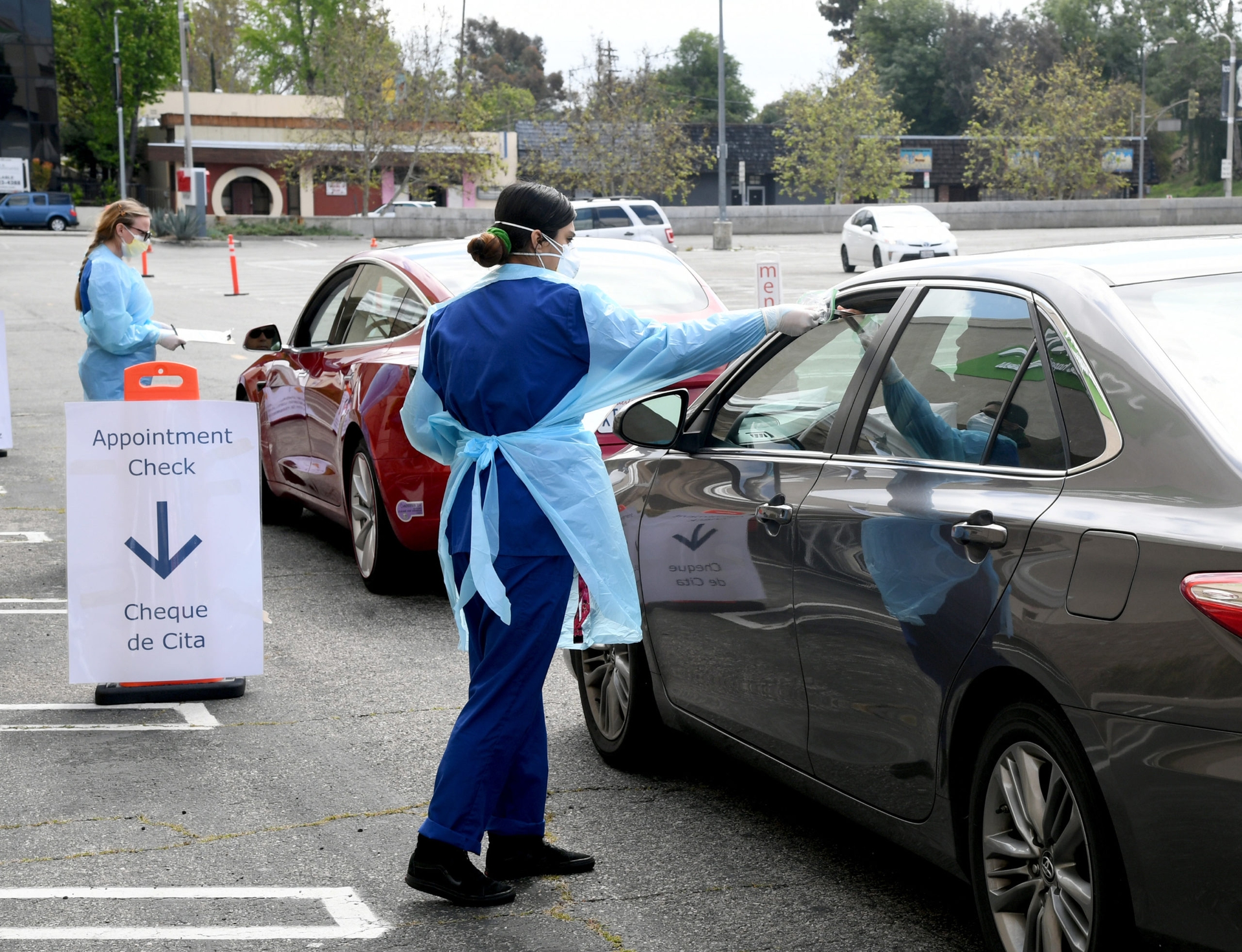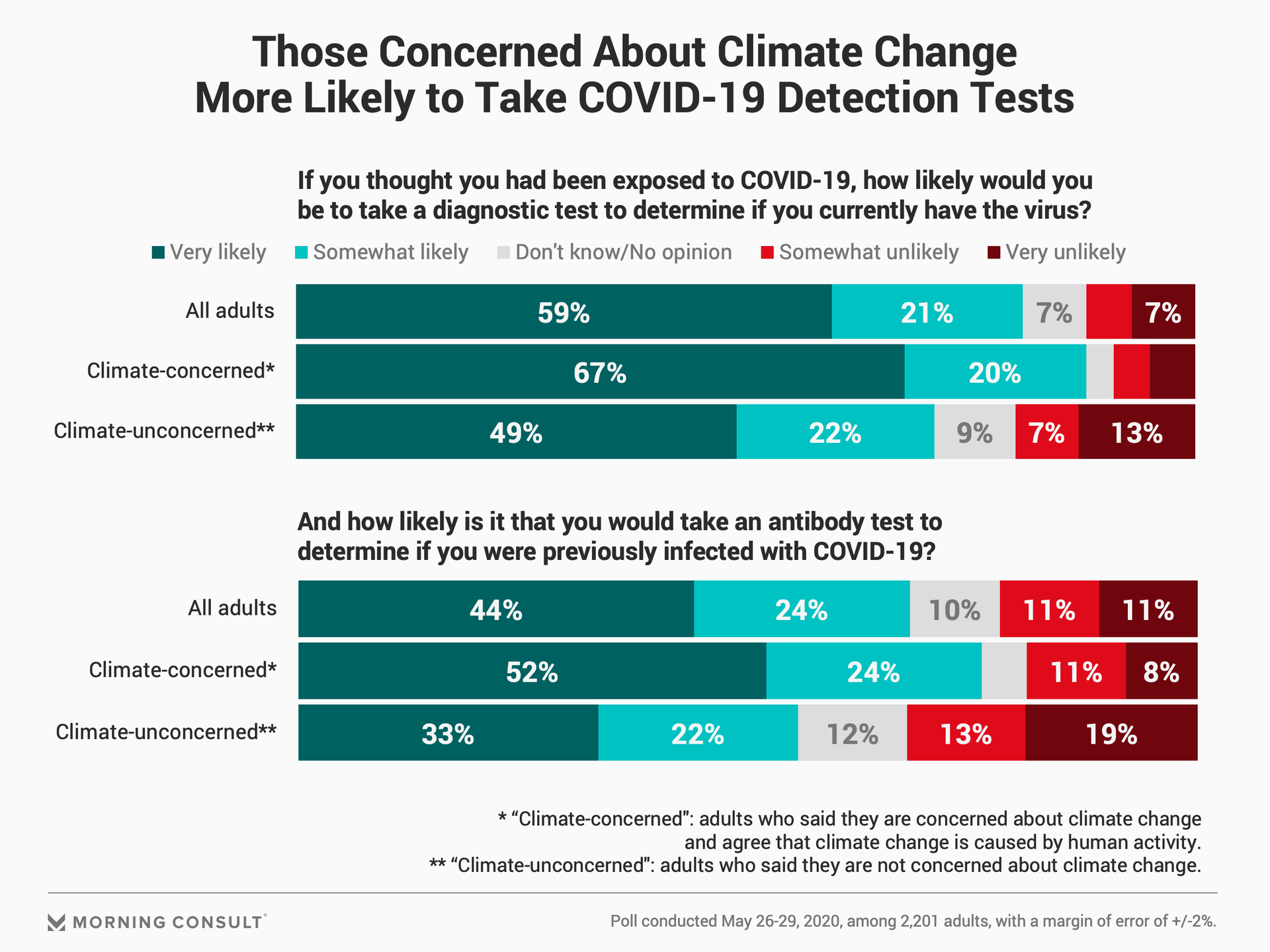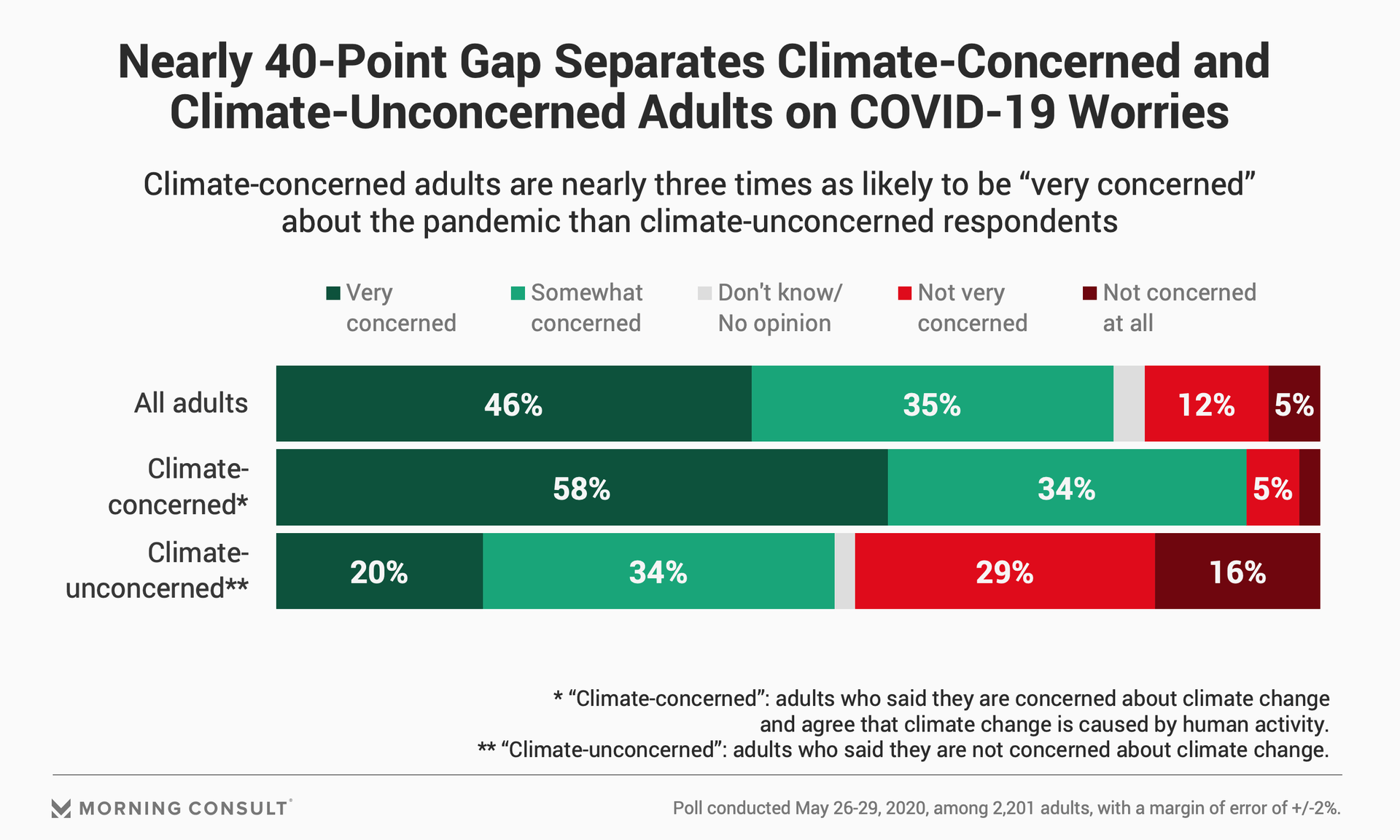Energy
Taking COVID-19 Tests Has Broad Support -- Especially Among Adults Concerned About Climate Change

Key Takeaways
Nearly 9 in 10 climate-concerned adults would be likely to take a diagnostic test if they thought they were exposed to the coronavirus, compared to roughly 7 in 10 climate-unconcerned respondents.
Climate-concerned adults are 21 points more likely to take a COVID-19 antibody test than their climate-unconcerned counterparts.
45 percent of climate-unconcerned adults say they are “not very” or “not at all” worried about the coronavirus pandemic.
Americans who are unconcerned about climate change are less likely to be willing to undergo diagnostic and antibody testing for COVID-19 than those who are, new Morning Consult data shows. But majorities of both groups expected they would take the tests if they were potentially exposed to the virus.
In a poll conducted May 26-29, 87 percent of climate-concerned adults said they would be likely to take a coronavirus diagnostic test if they suspected they had been exposed to the virus, and 76 percent said the same about an antibody test (which have had reliability concerns). Meanwhile, of the climate-unconcerned group, 71 percent would take a diagnostic test and 55 percent would take an antibody test.

The poll surveyed 2,201 U.S. adults and has a 2-point margin of error. The climate-concerned and climate-unconcerned cohorts have 3- and 4-point margins of error, respectively.
The climate-concerned group was defined as those who are both concerned about climate change and who agree with the scientific consensus that climate change is caused by human activity. The climate-unconcerned group included those who said they were either “not too concerned” or “not concerned at all” about climate change.
The gap between the two groups is even wider when respondents were asked about their overall concern regarding the pandemic; 92 percent of the climate-concerned group and 54 percent of the climate-unconcerned group said that they are “very” or “somewhat” concerned. Forty-five percent of climate-unconcerned adults said they were unconcerned about COVID-19, compared with 7 percent of climate-concerned adults who shared that view.

The division between the two groups mirrors the results of Morning Consult’s polling in April, which found that climate-unconcerned adults are less likely than the public to be taking actions like wearing masks and social distancing to combat the spread of the coronavirus. At the time, experts traced the discrepancy between the two groups to a combination of science skepticism and personal autonomy concerns. And in many cases, they said, the divide between the two groups is largely partisan. The late May poll found that 90 percent of Democrats were “very” or “somewhat” concerned about climate change, as compared with 51 percent of Republicans.
However, the virus-related partisan divide has sharpened over the course of the pandemic, said Salil Benegal, a political science professor at DePauw University who has focused on the public’s understanding of science, especially on issues like climate change and vaccines.
A March 13-16 poll conducted in light of President Donald Trump’s invocation of emergency powers to fight the pandemic found 49 percent of Democrats and 35 percent of Republicans were “very” concerned about coronavirus spread. By comparison, a June 5-7 poll found that the gap had widened to 32 points: 72 percent for Democrats and 40 percent for Republicans.
“It’s a question of which sources members of different parties are trusting for their information on the coronavirus,” Benegal said of the findings. “The messages that Democrats have been getting from members of their own party have been pretty different from the messages that Republicans have been getting from members of their party.”
Benegal cited the president’s assertion last month that a positive test for one of Vice President Mike Pence’s aides showed “why the whole concept of tests aren’t necessarily great.” Later that day, the president said testing is not necessary, and seemed to express a reluctance to expand the number of tests offered.
Dr. Mona Sarfaty, a physician and the director of the program on climate and health in the George Mason University Center for Climate Change Communication acknowledged the partisan divide between the two groups, which she attributed partially to misinformation from conservative media outlets. However, she also pointed out that focusing too much on the discrepancy belies the fact that huge majorities of both groups would get diagnostic tests, which is crucial to mitigating the spread of the coronavirus.
“We’re working against the backdrop in which there’s a percentage of people who don’t get preventive services,” she said, citing that flu vaccine coverage rarely rises above 60 percent annually and 65.3 percent of women 40 and over have had a mammogram in the past two years, despite evidence that regular monitoring prevents breast cancer.
“I think we're working against some very complex underlying realities,” Sarfaty added. “We're dealing with some limitations that shape the uptake of these services and the interest in them,” which include factors like lack of time, fear and affordability.
Lisa Martine Jenkins previously worked at Morning Consult as a senior reporter covering energy and climate change.
Related content

As Yoon Visits White House, Public Opinion Headwinds Are Swirling at Home

The Salience of Abortion Rights, Which Helped Democrats Mightily in 2022, Has Started to Fade
